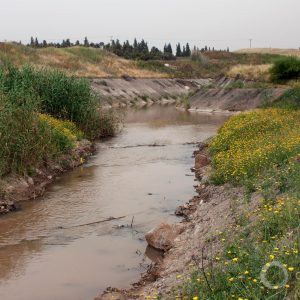The Stream, January 18: Famine Risk In Somalia As Drought Cuts Food Security
The Global Rundown
Drought and conflict could once again tip Somalia into famine, according to the United Nations and early warning agencies. An outbreak of typhoid in Zimbabwe’s capital has highlighted the city’s water and sanitation problems. A growing demand for lithium, used for products like electric car batteries, could pressure water supplies in the deserts of Bolivia. Legal conflicts continue over Dakota Access, as the company behind the oil pipeline asks a judge to prevent an environmental assessment of its route under Lake Oahe in North Dakota. Michigan’s attorney general is at odds with the state government over an order to deliver bottled water to Flint residents. Ice buildups along the Danube River have prompted officials in Serbia to employ icebreaking ships to prevent floods.
“Urgent action to ramp up assistance provision and ensure adequate humanitarian access is needed to address rising levels of food insecurity and mitigate the potential for large-scale loss of life.” –Statement from the Famine Early Warning Systems Network, describing deteriorating food security conditions in Somalia. The United Nations also warned that the drought-hit country, where already 5 million people do not have enough food, could likely experience famine if no action is taken. (Reuters)
In context: Droughts and food crises are a recurring problem in the Horn of Africa, but the international response to slow-moving disasters continues to fall short.
By The Numbers
70 percent Proportion of the world’s lithium reserves that exist in Bolivia, according to the country’s government. Lithium is used in electric car batteries, among other applications, but extracting it from Bolivia’s salt flats has raised concerns about the industry’s effect on water supplies and tourism. Guardian
200 people Number infected with typhoid in an outbreak in Harare, the capital of Zimbabwe. Doctors and aid groups say poor water and sanitation services are at the root of the problem and are calling on the government to make improvements. VOA News
3 icebreakers Number used to break ice jams along the Danube River in Serbia, where officials fear it could build up and cause flooding downstream. Reuters
Science, Studies, And Reports
Energy Transfer Partners, the company behind the Dakota Access oil pipeline, asked a U.S. federal judge this week to stop an environmental impact study of the line’s proposed route under Lake Oahe in North Dakota. Construction on the pipeline stalled after the U.S. Army Corps of Engineers, driven to action by extensive protests, denied the company an easement needed for the line to cross under the lake. Reuters
On The Radar
Michigan’s attorney general, Bill Schuette, has expressed support for a federal judge’s order that the state government deliver bottled water to residents affected by the lead-contaminated water crisis in Flint. The state government itself, however, has appealed the order twice and argues the deliveries are too costly and unnecessary. Detroit Free Press
In context: How the Flint water crisis unfolded.
A news correspondent for Circle of Blue based out of Hawaii. She writes The Stream, Circle of Blue’s daily digest of international water news trends. Her interests include food security, ecology and the Great Lakes.
Contact Codi Kozacek




